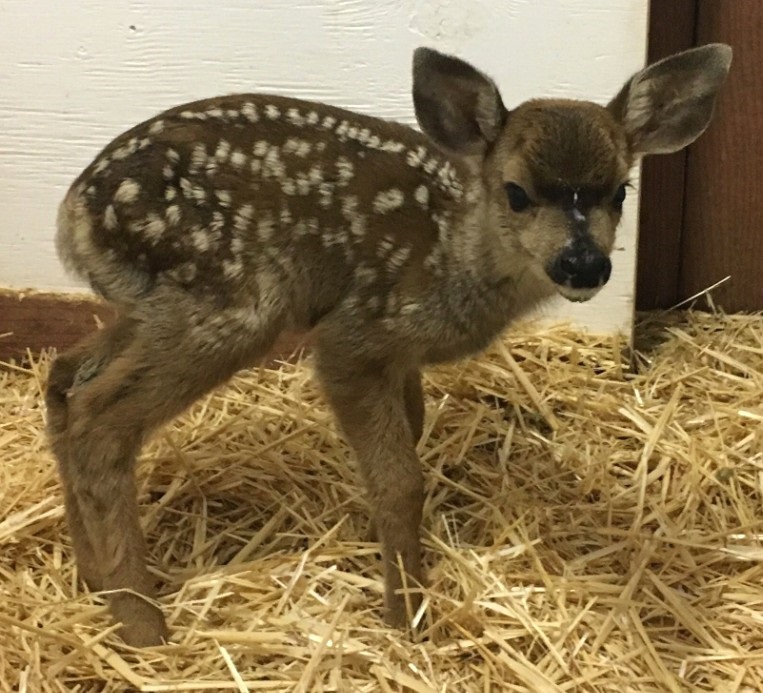CWC Cares for Its First Fawn of the Year
By Cori Carlson, Administrative Assistant

First Mule Deer Patient of the Year
Photo by Cambria Wells
California Wildlife Center took in its first Mule Deer fawn of the year on May 2. As of writing this, we’re caring for two. That timing is fairly typical since Mule Deer are born from April to June. They are nursed by their mothers throughout the summer and weaned in the fall.
CWC is the only facility authorized to care for orphaned or abandoned fawns in Los Angeles County. Last year, we admitted 11.
Native to California, this Deer got their name because of their large ears that look a bit like they belong on a mule. They can be found throughout the western United States. When they’re first born, their backs are dotted with white spots, a bit of camouflage to help protect the newborns.
When they first come to us, the young fawns are kept in a heated room with a hay-covered floor and are bottle-fed a specialized formula containing goat milk. We greatly limit the number of people who come into contact with Deer in our care. Only our veterinarian, wildlife technicians, and trained interns and volunteers care for our fawns. The young Deer can habituate to humans very easily, so it’s important they don’t get too exposed to us while they’re here. For this reason, we have installed cameras in the Deer enclosures to monitor them and limit our face-to-face interactions. There is nothing like seeing an adorable wobbly young fawn.
As they gain weight and grow, they move into a small outdoor enclosure and learn to eat on their own. Mule Deer are herbivores and eat a variety of fresh green leaves, twigs, shrubs, various grasses, and berries. Toward the end of their stay, they move into a large field-like enclosure until they are ready to be released, which typically happens in the fall.
In the wild, fawns may appear to spend a lot of time on their own. But that’s one of the ways their mothers try to keep them safe. Fawns are often left alone, allowing them to hide until they’re big enough to outrun predators. Their mothers usually are close by and will come back to nurse them but are keeping their distance to protect their fawns.
If you find a fawn that appears abandoned, sick, injured or in distress, please call your local wildlife rehabilitator or CWC at (310) 458-9453 before you approach.
